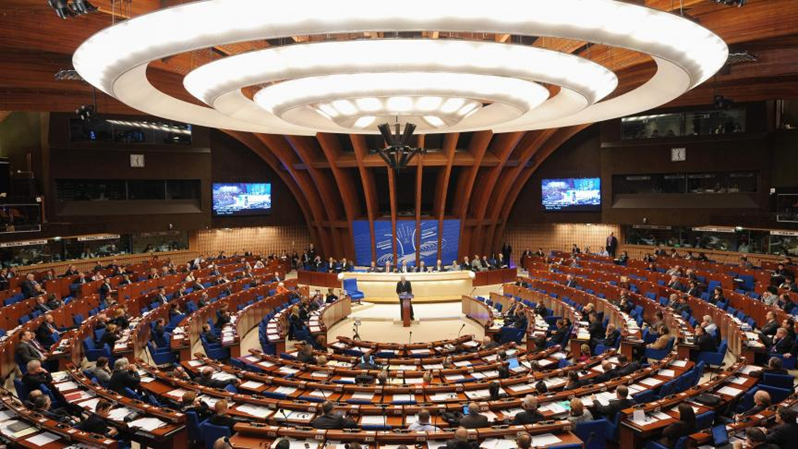On October 1, 2023, Julian Assange, the founder of WikiLeaks, made his first public appearance since being released from prison during a session of the Parliamentary Assembly of the Council of Europe (PACE) in Strasbourg, France. Assange was invited to testify regarding the ongoing attempts by the U.S. government to extradite him in connection with his revelations about U.S. war crimes in the Middle East. If extradited and convicted, Assange could face up to 175 years in prison. His address focused on the implications of his case for human rights and freedom of the press, highlighting a report that examined the chilling effects his detention and conviction could have on journalists and human rights advocates across Europe.
Assange’s address began a significant discussion on the dangerous precedent his case sets for journalists around the world. He expressed that the rights of journalists and publishers are under serious threat in Europe due to what he termed “transnational repression.” His remarks were a plea for European parliamentarians to resist the influence of the U.S. government in criminalizing journalistic activities. He articulated the notion that he had been unjustly prosecuted for merely doing his job as a journalist, which should not be considered a crime but a fundamental tenet of a free society. His statements resonated with PACE members, illustrating the necessity for legal amendments to protect journalists and to reverse the trend of increasing censorship.
A crucial element of Assange’s testimony addressed the political nature of his own detention. He recounted his harrowing journey, which included a seven-year stay in the Ecuadorian Embassy to avoid extradition and a subsequent four-year imprisonment in the high-security Belmarsh Prison due to the charges laid against him. His plight received international attention, having been deemed unlawful detention by the U.N. Working Group on Arbitrary Detention, which called for his immediate release and compensation. However, these recommendations went largely unacknowledged by UK authorities, emphasizing the complex political dynamics intertwined with Assange’s case.
During the October 2 session following his testimony, PACE engaged in a debate over whether Assange should be officially recognized as a political prisoner. The committee’s discussions underscored their concerns regarding his treatment and the broader implications for freedom of expression. Ultimately, 88 members voted in favor of declaring him a political prisoner, while only 13 opposed, and 20 abstained. This formal recognition from such an influential assembly carries significant symbolic weight and arguably positions Assange’s case within the context of ongoing struggles for press freedom globally, serving as a rallying point for advocates of civil liberties.
As the discussion unfolded, PACE’s resolution called for the U.S. to reform the 1917 Espionage Act to prevent its application to journalists and whistleblowers. This recommendation echoes a growing unease about the risks faced by those within and outside of Europe who attempt to inform the public about governmental misconduct. The pressure for the U.S. government to reassess its approach represents a collective recognition that suppressing journalistic expression threatens the foundational values of democracy. The Assembly’s strong stance on Assange’s case reinforces the notion that protections must be extended to those who hold power accountable through the dissemination of crucial information.
In summation, Julian Assange’s return to the public realm marks a pivotal moment in the ongoing struggle for press freedom and human rights amidst a backdrop of increasing governmental repression worldwide. His testimony to PACE not only illuminates the serious risks faced by journalists but also prompts urgent dialogue regarding the need for legal reforms that prioritize freedom of expression. As political dynamics continue to influence legal outcomes, the recognition of Assange as a political prisoner by PACE may serve as a catalyst for broader advocacy against the global trend of silencing dissent and journalism. Advocates stress the significance of protecting the rights of all those who work to expose the truth, as the future of investigative journalism hangs in the balance.

